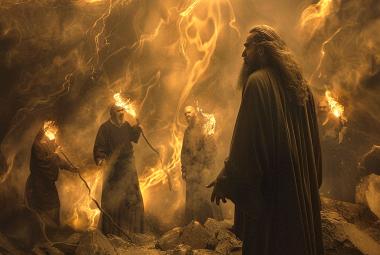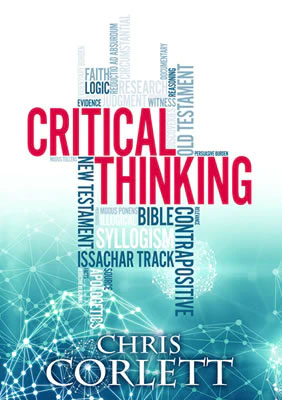The spring of 2022 brought several above-the-fold news stories about social media and corporate policy. Many of these stories continue to develop and the following provides a few key moments to establish a record for each reader of this article to consider.
- On February 21, 2022, Truth Social launched. A social media platform developed by Trump Media & Technology Group, it is seen as a response to Facebook banning President Trump from its social media platform and it is modeled after the Twitter platform. User posts are called “truths” instead of “tweets.” It is a self-proclaimed “big tent” platform with the promise of free expression for its users with no political censorship.
- On April 25, 2022, media outlets reported Elon Musk would purchase Twitter for approximately $44 billion. The $54.20 purchase price for each share represents a markup of 38% over the stock price the day before Musk revealed his status as one of Twitter’s largest stakeholders in Twitter. “Free speech is the bedrock of a functioning democracy, and Twitter is the digital town square where matters vital to the future of humanity are debated,” Musk said.
- On April 27, 2022, the Biden administration revealed the existence of the Disinformation Governance Board, which began operating some two months prior to the announcement. Alejandro Mayorkas, Secretary of Homeland Security, tried to reassure a wary public that the board held no operational authority or capability and would not be used to monitor American citizens.
- On May 12, 2022, Netflix updated its corporate statement adding a new section addressing “artistic expression.” “As employees, we support the principle that Netflix offers a diversity of stories, even if we find some titles counter to our own personal values,” the culture document states. “Depending on your role, you may need to work on titles you perceive to be harmful. If you’d find it hard to support our content breadth, Netflix may not be the best place for you.”1
This is hardly a complete collection of the stories fueling the conversation about content moderation. Furthermore, these events have updates and developments, including ones that interrupted the writing of this article. This list needs to be sufficient to capture the conversation about content moderation and censorship.
Does the conversation benefit from “fact-checkers” and notices about “missing context?” Is it appropriate to lock social media accounts or ban individuals from a specific platform? Are social media private companies with autonomy in making policies regarding these issues whereby the consumer decides what endures and what fades?
What say ye about content moderation and censorship? I stand up for the individual’s right to moderate the content watched, heard or read. During my childhood, when a television show was controversial or questionable, the refrain was “Change the channel!” “Be careful little eyes what you see.” “Be careful little ears what you hear.” From Paul in his letter to the Philippians:
Finally, brethren, whatever things are true, whatever things are noble, whatever things are just, whatever things are pure, whatever things are lovely, whatever things are of good report, if there is any virtue and if there is anything praiseworthy—meditate on
these things. The things which you learned and received and heard and saw in me, these do, and the God of peace will be with you.2
The individual decides who to follow, like, and support. This approach requires a diversity of information and opinion. Neither side of an argument can own the record of evidence. All sides have an intellectual obligation to provide evidence in support of each position and needs an opportunity to call into question the relevance and reliability of the evidence presented by other sides. As long as “truth” is seen as a commodity owned by some instead of something that nobody has and everybody needs, influences suppressing opposition will exist.
Truth exists, and its pursuit is vital to a meaningful life – the arrogance of man that it has obtained it, is a failing of character and a failure of discovery. What benefit could result if somebody invented a blindfold for the prejudices and the hubris we suffer! Not until Saul was blinded could he finally see!3
I hear the objection already – “If we stand for nothing, we will fall for anything!” Critical thinking skills and habits are required to navigate these choppy waters. Koinonia Institute relies on its three tracks – Berean, Issachar and Koinonos – to lay a foundation of truth, provide skills and perspective for understanding the times, and promoting ministry and service aligned with your calling. Koinonia House publishes and produces journals, books, videos, and so much more to develop the critical thinker in each person. Chuck Missler’s signature verse obligates his listener to listen critically and examine his claims.
“These were more fair-minded than those in Thessalonica, in that they received the word with all readiness and searched the Scriptures daily to find out whether these things were so.”4
Chief among the tools of the critical thinker is the discipline to consider what is evidence and what is narrative. The narrative surrounding Georgia’s Election Law SB202 pitted “Voter Suppression” by its opponents against “Election Integrity” among its supporters. This month we have evidence which is both relevant and reliable in tipping the balance in this debate. This article does not analyze the data and instead uses this example to capture this evidence versus narrative culture. We previously wrote about correspondence truth in contrast to coherence truth. Correspondence truth relies on evidence to confirm what is reality. Coherence truth relies on a story to influence perception. The well-behaved critical thinker resists dismissing the inconvenient evidence that will always lurk around any contentious debate. Instead, relevance and reliability of the evidence are considered in giving the evidence the weight that it deserves.
Evidence – whether convenient or not – is best obtained from diverse contributors to multiple platforms. And so, I close this article with the statement: “The Critical Thinker must embrace all the evidence before reaching a conclusion rather than reach a conclusion before hunting for the suitable evidence. If our social conversation embraced this, so much would be different – and I believe it would be a better conversation.”






